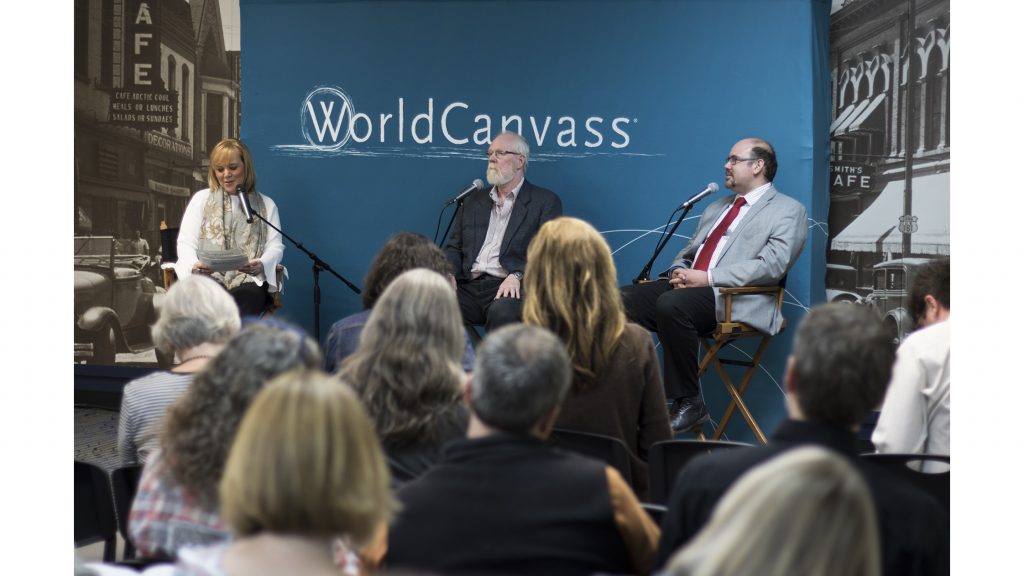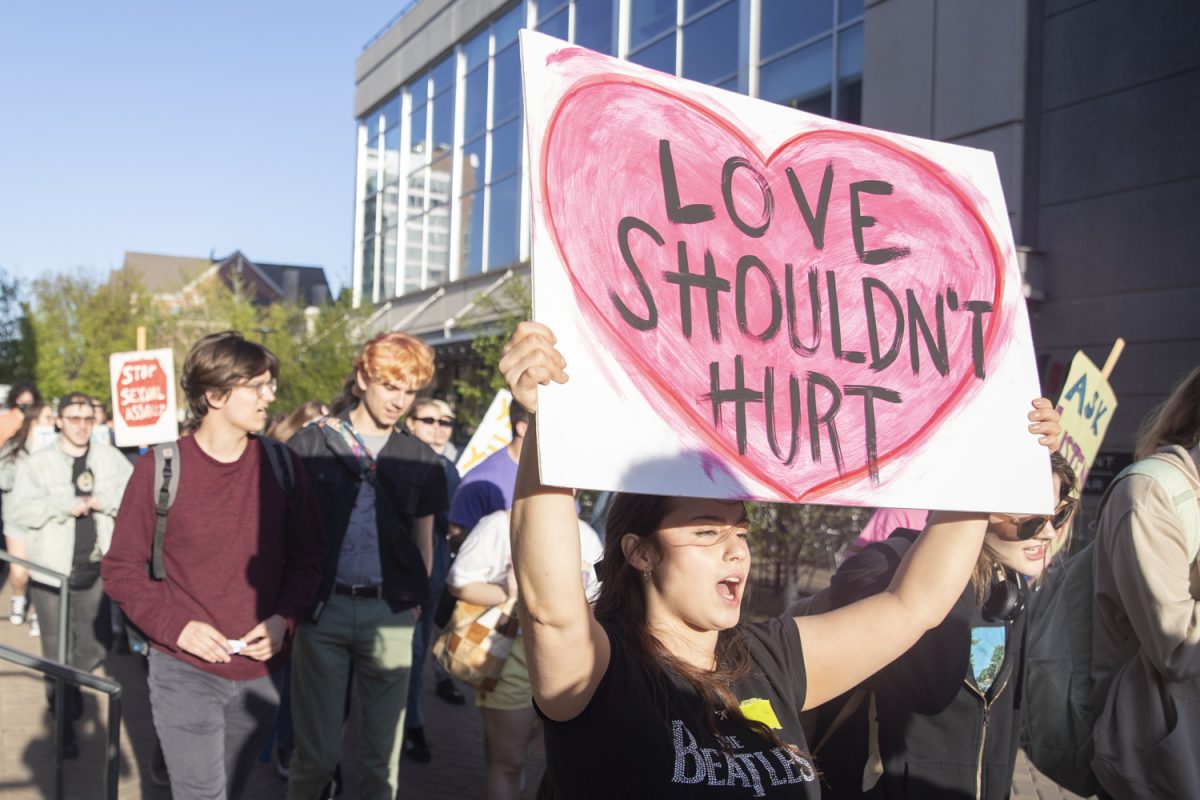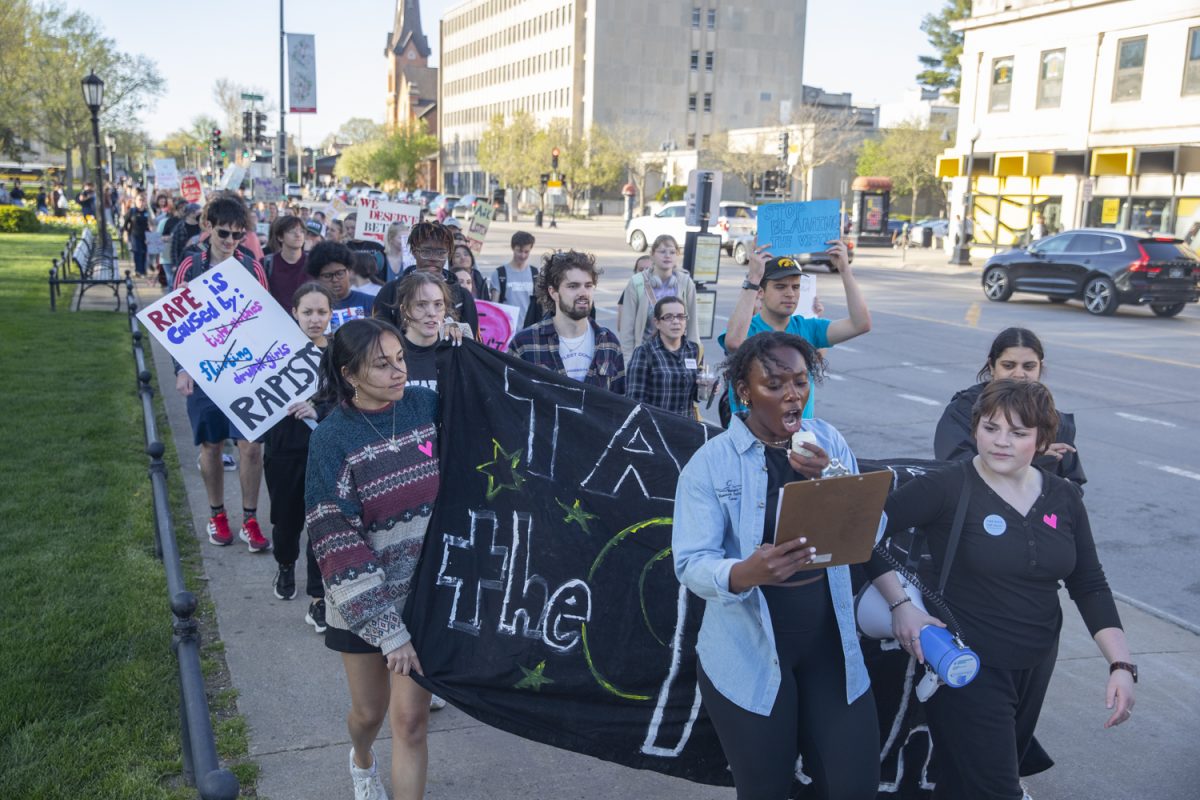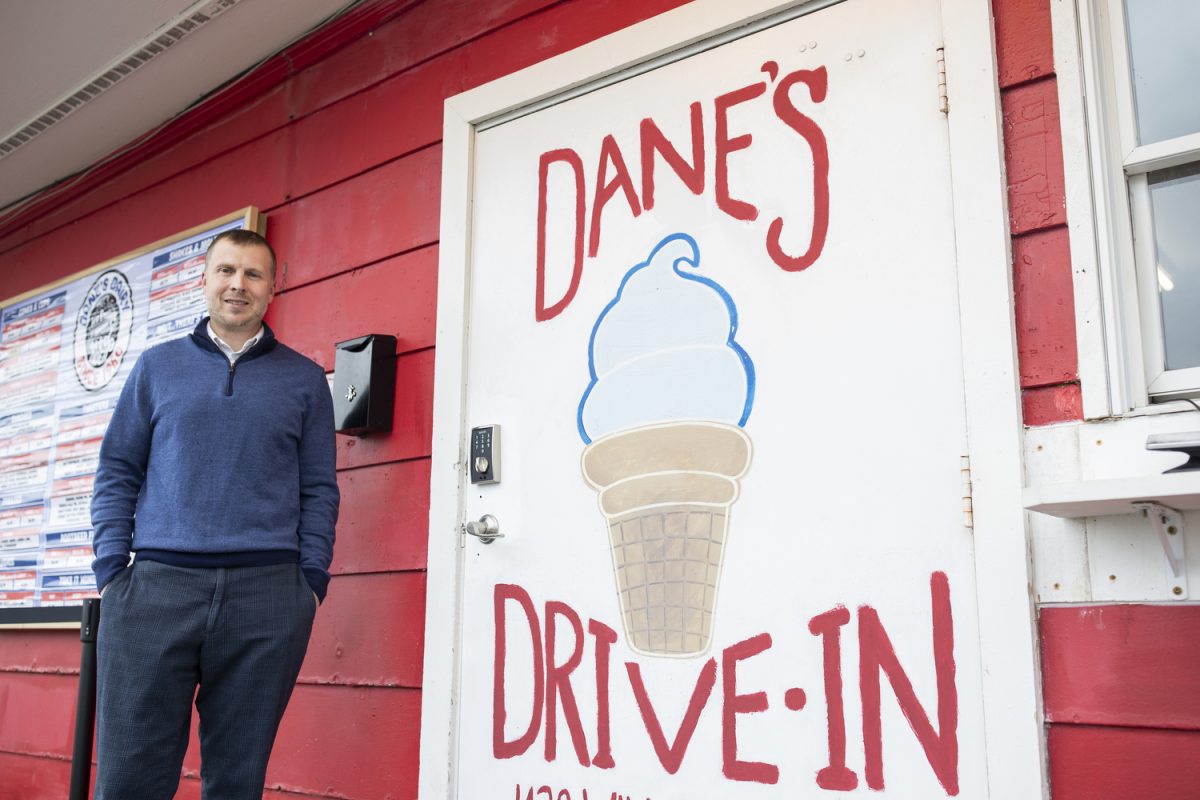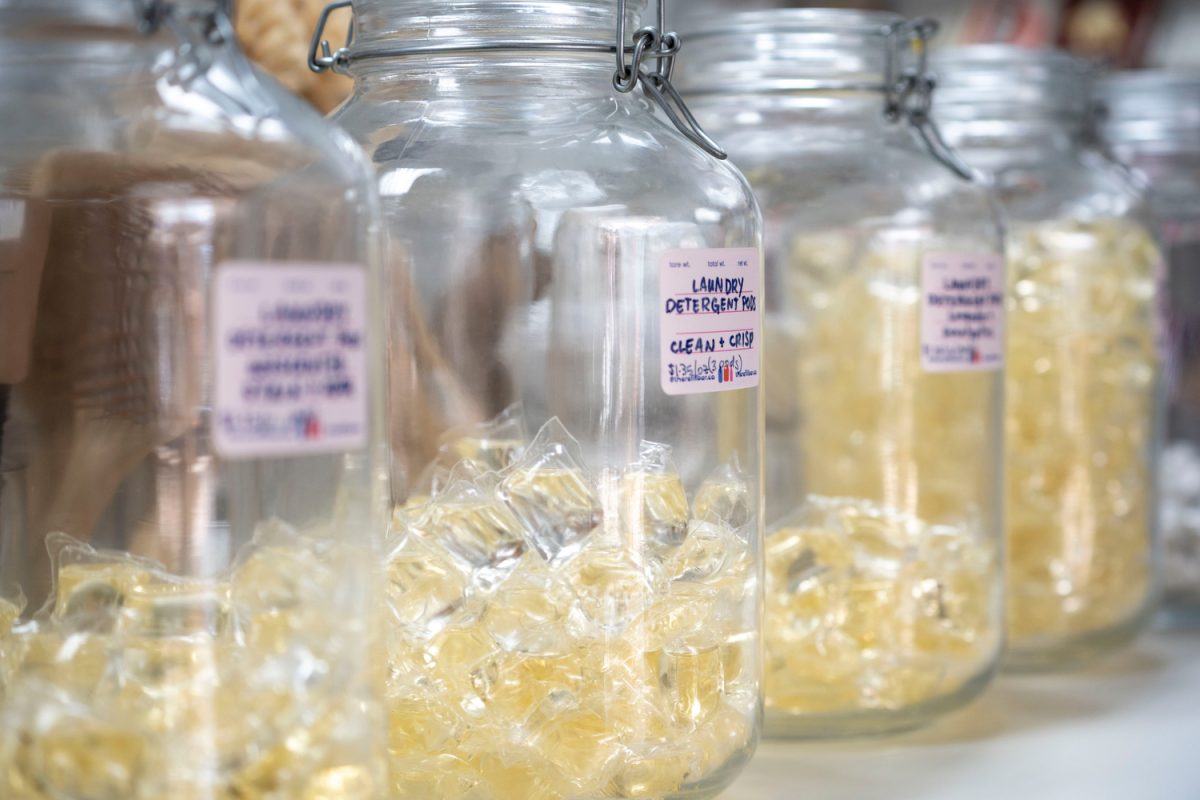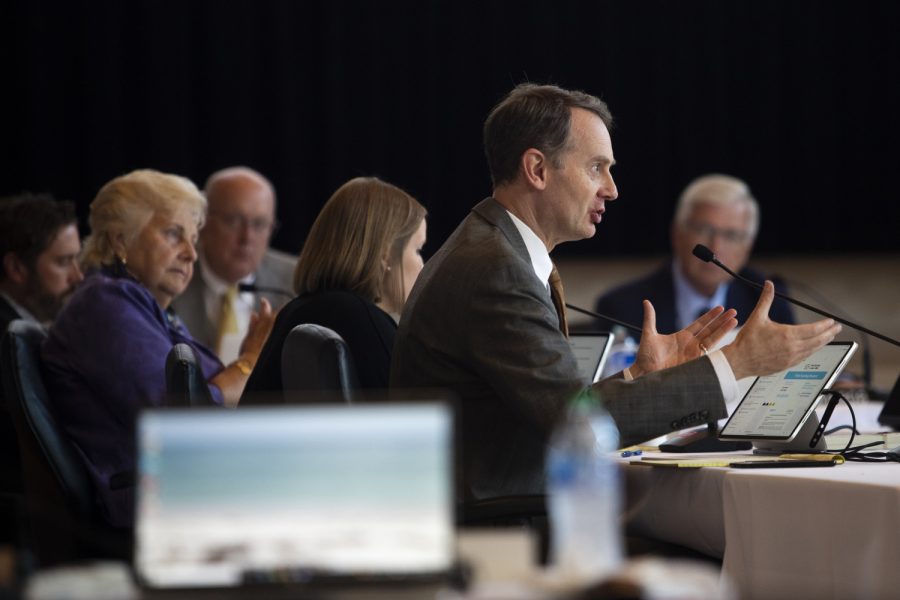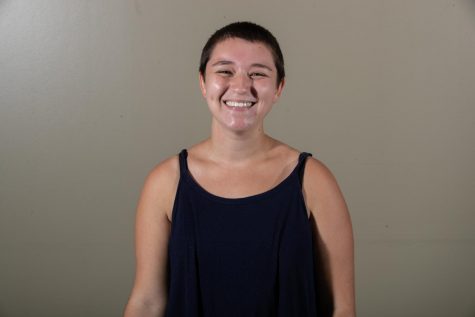As Earth Month comes to a close, many people will return to habits that hurt the environment, but experts are looking for ways to sustain the sustainability trend.
At the University of Iowa International Programs’ last WorldCanvass of the season on Wednesday, leaders in climate science and environmental fields came together at MERGE, 136 S. Dubuque St., to discuss policy approaches to environmental challenges in the U.S. and around the globe.
“Climate Science and the Environment: What’s Next?” was broken up into three sections, each covering a different environmental topic.
The first session featured UI College of Engineering faculty members Greg Carmichael and Gabriele Villarini, who discussed air quality, atmospheric rivers, and storm-pattern prediction. Carmichael is the co-director of the Center for Global & Regional Environmental Research, and Villarini is the director of IIHR — Hydroscience & Engineering.
Carmichael said air quality in Iowa is pretty good, and right now he’s focusing on two of the countries with the worst air quality in the world: China and India. Both countries are working hard to mitigate their air pollution, taking a page out of Los Angeles’ book. Around 60 years ago, LA had horrible air quality, Carmichael said, but Claifornia officials implemented polic ies that fixed many of the problems.
“We’re committed to many of those changes already; we just need to make it to a point where the Earth is in better balance than it is now,” he said.
RELATED: City Council partners with UI’s semester theme of environmental sustainability
Craig Just and Larry Weber, both College of Engineering faculty members, discussed water quality in the second session. Weber covered the Iowa Watershed Approach for Urban and Rural Resilience, a program to address factors that contribute to floods with the goal of reducing flooding and improving water quality.
Just focused on another avenue of improving Iowa’s waters: freshwater mussels. Iowa’s waterways host billions of these mussels, which filter algae and nitrogen out of water through “eating, peeing, pooping, and puking.” The population has been depleted by the pearl-button business and soil runoff, Just said, and it’s important to the ecosystem that they be brought back to life.
“They’re like the canary in the coal mines, and as they go, the health of our rivers and streams goes,” he said.
The final session discussed global responses to environmental challenges. Faculty members Jerry Anthony, Tyler Priest, and Jerry Schnoor all weighed in, giving their opinions on how the world’s people can try to lessen their impact on the Earth. They agreed that cities have the largest impact, and they’re doing the most to try to reduce their emission of greenhouse gases.
Anthony said Iowa City has been doing well with sustainability, includng promoting alternative modes of transportation such as biking and walking and its plans to reduce greenhouse-gas emissions.
“Amazing things have been happening in cities, so I’m very, very hopeful,” he said.
One thing each speaker noted was the absence of a silver bullet in fixing climate change. Changes have to be made in many different areas to make any real impact, Carmichael said, and everyone needs to buy in.
“I think dealing with the environment is kind of like dealing with exercise and diets; there are no quick fixes,” he said. “It really is a commitment to making individual changes, making changes at the local level in terms of policies … then also being vigilant to see that the state and national agendas address these issues.”





